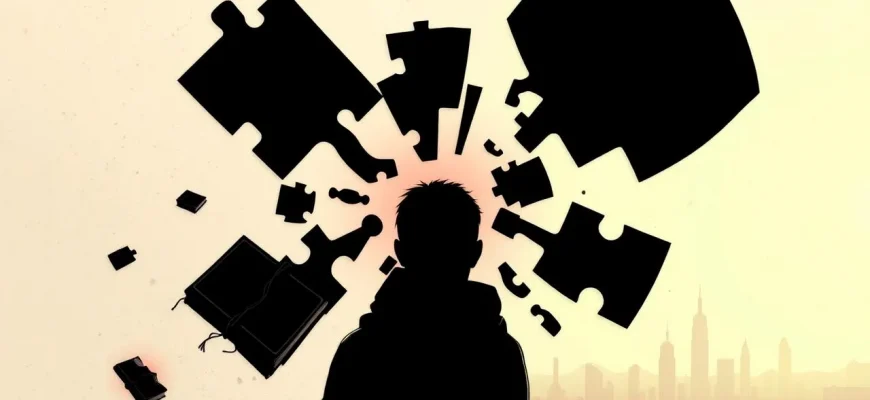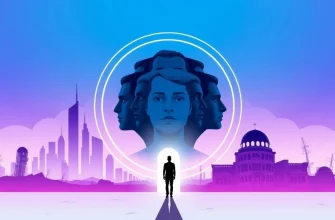The theme of lost memory in science fiction cinema offers a unique blend of mystery, identity exploration, and often, a touch of dystopian futures. These films delve into the psychological and existential questions of who we are when we can't remember our past. This curated list not only entertains but also challenges viewers to ponder the essence of memory and identity, making it an invaluable watch for those intrigued by the complexities of the human mind and futuristic storytelling.

Total Recall (1990)
Description: Douglas Quaid's quest for a virtual vacation on Mars leads him to discover a hidden past, exploring themes of memory implantation and reality vs. illusion.
Fact: The film was based on Philip K. Dick's short story "We Can Remember It for You Wholesale." Arnold Schwarzenegger's performance was critically acclaimed.
 Watch Now
Watch Now 
Dark City (1998)
Description: John Murdoch wakes up with no memory in a city where reality is manipulated by mysterious beings. His journey to uncover his past and the truth about the city is a quintessential exploration of lost identity.
Fact: The film was initially a box office disappointment but has since gained a cult following. It was influenced by film noir and German Expressionism.
 Watch Now
Watch Now 
Memento (2000)
Description: This film follows Leonard Shelby, who suffers from short-term memory loss, as he attempts to find his wife's killer. Its non-linear narrative structure perfectly encapsulates the theme of lost memory, making it a cornerstone in this genre.
Fact: The film was shot in reverse order to match the protagonist's memory condition. Christopher Nolan wrote the screenplay based on his brother's short story.
 Watch Now
Watch Now 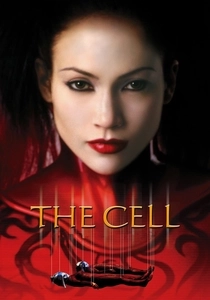
The Cell (2000)
Description: A psychologist enters the mind of a comatose serial killer to find his latest victim. While not directly about lost memory, the exploration of the subconscious and memory manipulation is central to the plot.
Fact: The film's surreal visuals were inspired by the works of H.R. Giger and Salvador Dalí. It was Jennifer Lopez's first lead role in a thriller.
 Watch Now
Watch Now 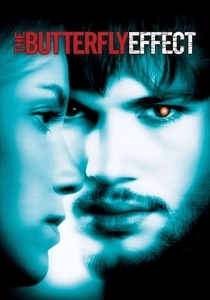
The Butterfly Effect (2004)
Description: Evan Treborn discovers he can travel back in time to inhabit his former self, altering his life's events. His attempts to fix past mistakes lead to unintended consequences, exploring themes of memory and time.
Fact: The film had several alternate endings, reflecting the theme of changing the past. It was inspired by the chaos theory's butterfly effect.
 Watch Now
Watch Now 
Eternal Sunshine of the Spotless Mind (2004)
Description: After a painful breakup, Joel undergoes a procedure to erase memories of his former girlfriend, Clementine. The film explores the consequences and ethics of memory manipulation, fitting perfectly into our theme.
Fact: The film was inspired by a conversation between Charlie Kaufman and Pierre Bismuth about the idea of erasing memories. It won the Academy Award for Best Original Screenplay.
 Watch Now
Watch Now 
Paycheck (2003)
Description: Michael Jennings, an engineer, undergoes memory wipes after completing high-security projects. When he wakes up with no memory of the last three years, he must piece together his past to survive.
Fact: The film is based on a Philip K. Dick short story. John Woo directed, bringing his signature action style to the sci-fi genre.
 Watch Now
Watch Now 
The Machinist (2004)
Description: Trevor Reznik, a machinist, hasn't slept in a year and suffers from severe insomnia, leading to memory loss and paranoia. His journey to uncover the truth behind his condition is both psychological and thrilling.
Fact: Christian Bale lost over 60 pounds for the role, showcasing his dedication to portraying a character with extreme physical and mental deterioration.
 Watch Now
Watch Now 
The Jacket (2005)
Description: Jack Starks, a Gulf War veteran, suffers from amnesia and is subjected to experimental treatments that send him into the future. His quest to understand his past and future intertwines memory loss with time travel.
Fact: The film was shot in Canada, with scenes in a real mental institution. Adrien Brody lost significant weight for his role.
 30 Days Free
30 Days Free 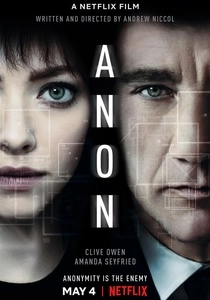
Anon (2018)
Description: In a future where privacy is non-existent due to technology, a detective with no memory of his past investigates a series of murders, delving into themes of identity and memory.
Fact: The film was directed by Andrew Niccol, known for his thought-provoking sci-fi narratives. It explores the concept of digital identity and memory in a surveillance state.
 30 Days Free
30 Days Free 
